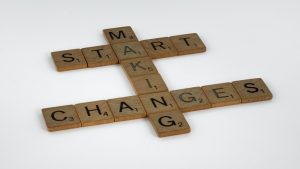So states Jon Kabat-Zinn in this YouTube video titled: “Life is right now”.
Part of the work I do with clients when we are dealing with how to align stress management with career issues and choices includes Mindfulness techniques.
I was introduced to this video by Jon Kabat-Zinn when I started my mental well-being practice over a decade ago, and it appealed to me as it very eloquently articulates the scientific and physiological basis for Mindfulness.
Some of my clients struggle to understand why it may be important to incorporate Mindfulness and Stress Management techniques in a Career Development Program. Coming from a background in physiology and psychology myself, I have always been amazed at the capacity our minds have to impact us at both a physical, emotional, and energetic level. For some, the former is not as obvious as the latter two.
How Mindfulness impacts career development
Jon Kabat-Zinn speaks to mind plasticity that continues throughout our adult lives, not just during the developmental years. It is this mind plasticity that I look to tap into in order to assist clients working to overcome career issues at a current workplace, or who are looking to make a career transition. The transition may be within their current role or something in a completely new industry/ way of life.
Incorporating Stress Management Techniques that include Mindfulness has many benefits that include allowing us to think more clearly, make more rational decisions, and access areas of our creativity that may have been neglected for years.
This creativity can allow us to consider possibilities that may not have been on our radar to consider in a stressed-out state. Stress at work and in our personal lives is very real and manifests differently for everyone.
Admitting to stress and being cognizant of your stressors are the first steps to overcoming stress.
Some hide in the guise of the very accepted “Workaholic”, but why is this addiction less stigmatized than other addictions to substances and behaviours? Employers may perceive the “Workaholic” at the office as being productive, but in the long run, the lack of work/life balance can lead to burnout, higher absenteeism, and employee turnover. All of these are ultimately costly to the company’s bottom line, not to mention (and more importantly) workplace morale and the individual employee suffering from this addiction. Employee engagement in organizations is a significant theme in this arena. That topic is a whole post unto itself.
If we can use and practice the tools of Mindfulness and similar techniques to overcome stress in all areas of our lives, we will be more balanced and content with ourselves. If we can be happier with ourselves, we may discover that we will relate better with others at work and at home.
Subsequently, Mindfulness helps to improve our self-esteem and interpersonal relationships. Combined with using various techniques to mitigate stress, this will lead to higher productivity in all aspects of our lives.
If you are curious about Mindfulness or other ways to reduce and manage stress, anxiety, and depression, contact us today for more resources and information.



